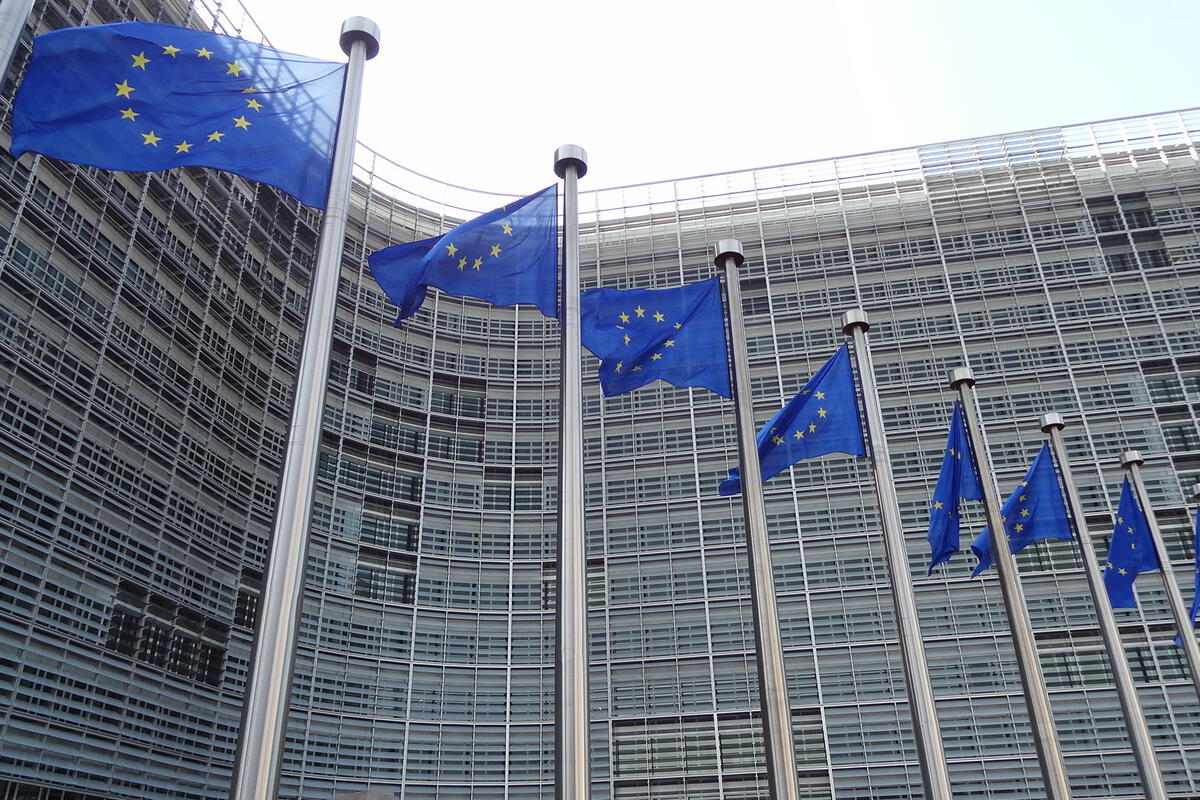Physical Address
304 North Cardinal St.
Dorchester Center, MA 02124
Physical Address
304 North Cardinal St.
Dorchester Center, MA 02124

The European Commission (EC) has recently expressed concerns regarding Amazon’s proposed acquisition of iRobot, a leading manufacturer of robot vacuum cleaners (RVCs). The EC believes that this acquisition could potentially leave Amazon’s European competitors in the dust, leading to restricted competition in the market for RVCs.
In August, Amazon announced its intention to acquire iRobot for a staggering $1.4 billion. However, this move has raised red flags among EU legislators, who fear that Amazon’s dominant position in the online retail industry may result in the restriction or discouragement of the sale of competitive RVC products on its European websites.
As a result, the European Commission has taken action by sending a formal statement of objections to Amazon. This move comes after the EC initiated an investigation in July to assess the potential implications of the deal. Initially valued at $1.7 billion, the acquisition was later reevaluated, leading to a drop in the price.
The statement of objections highlights the Commission’s concerns about Amazon’s potential to restrict competition in the European Economic Area (EEA) and national markets for RVCs. The EC is worried that Amazon may hinder the ability of rival RVC suppliers to effectively compete in these markets.
Specifically, the European Commission is concerned that Amazon could engage in strategies aimed at preventing rivals from selling RVCs on its online marketplace or degrading their access to it. This could include delisting rival products, reducing their visibility in advertising results, and limiting access to site widgets that refer customers to competitors’ products.
The Commission’s primary fear is that Amazon’s actions may lead to higher prices, lower quality, and less innovation for consumers in the market for RVCs. By squeezing out rivals and restricting competition, Amazon could potentially dominate the market, leaving consumers with limited choices and fewer benefits.
It is important to note that the objections raised by the European Commission do not signify the end of the deal in Europe. However, the release of the Commission’s statement has caused a significant drop in iRobot’s shares, indicating the potential impact of the investigation on the market perception of the acquisition.
While the UK antitrust agency has already cleared the deal unconditionally after a preliminary review, the US Federal Trade Commission is still examining the acquisition. This scrutiny is not uncommon for tech deals involving Big Tech companies, as regulators are keen to address any potential anti-competitive concerns that may arise from consolidation.
Overall, the European Commission’s objections reflect its commitment to ensuring fair competition in the market for RVCs. By raising concerns about Amazon’s acquisition of iRobot, the Commission aims to protect the interests of consumers and prevent any potential negative consequences that may arise from restricted competition.
The EU Commission’s deadline to make a final decision on the acquisition is set for February 14, and until then, Amazon and iRobot will need to address the concerns raised by EU regulators to move forward with the deal.
The European Commission’s concerns over Amazon’s acquisition of iRobot have the potential to impact various stakeholders in the market for robot vacuum cleaners (RVCs). If the acquisition proceeds without addressing the Commission’s objections, several effects may be observed.
One of the primary effects of Amazon’s acquisition of iRobot, as highlighted by the European Commission, could be the restriction of competition in the market for RVCs. If Amazon engages in strategies to hinder rival RVC suppliers’ ability to effectively compete, it may lead to a lack of choice for consumers. With limited competition, Amazon could potentially dominate the market, exerting significant control over pricing, product quality, and innovation.
If Amazon successfully squeezes out rivals and restricts competition, it may result in higher prices for RVCs. With limited alternatives available to consumers, Amazon could potentially dictate pricing without the pressure of competitive forces. Moreover, reduced competition may also lead to a decline in innovation within the RVC market. Without the incentive to outperform competitors, there may be less investment in research and development, resulting in fewer advancements and improvements in RVC technology.
The European Commission’s concerns about Amazon’s potential actions, such as delisting rival products or reducing their visibility, could have a direct impact on rival RVC suppliers. If Amazon limits access to its online marketplace or degrades the visibility of competitor products, it may significantly affect the sales and market presence of these suppliers. This could lead to a loss of revenue and market share for rival companies, potentially stifling their growth and ability to compete effectively.
Restricted competition in the RVC market may result in limited choices for consumers. With Amazon potentially dominating the market, consumers may have fewer options when it comes to selecting RVCs that suit their specific needs and preferences. Additionally, reduced competition may also impact the quality of available RVCs. Without the pressure to innovate and improve, there may be a decline in the quality and performance of RVCs offered to consumers.
The European Commission’s objections and the subsequent investigation into the acquisition have already had an effect on the market perception of the deal. The significant drop in iRobot’s shares following the release of the Commission’s statement indicates the potential impact on investor confidence. The uncertainty surrounding the acquisition and the regulatory scrutiny it faces may lead to cautiousness among investors, affecting the overall market sentiment towards the deal and the companies involved.
These potential effects highlight the importance of addressing the European Commission’s concerns and ensuring fair competition in the market for RVCs. By considering the potential consequences of the acquisition, stakeholders can make informed decisions and work towards maintaining a competitive and innovative RVC market that benefits both businesses and consumers.
If you’re wondering where the article came from!
#